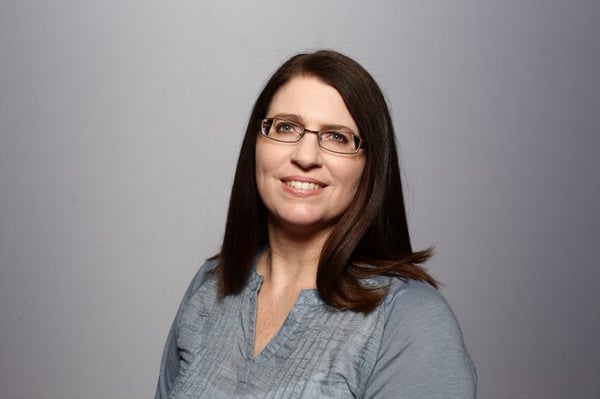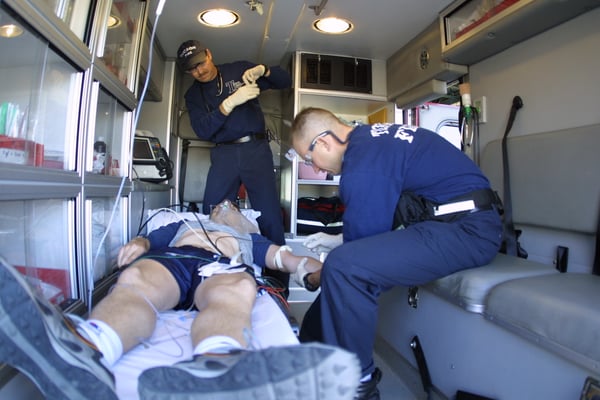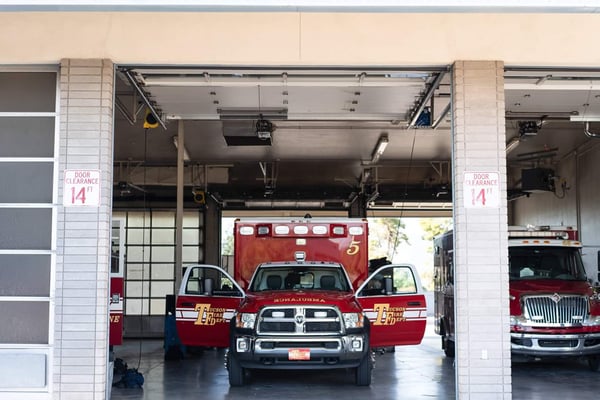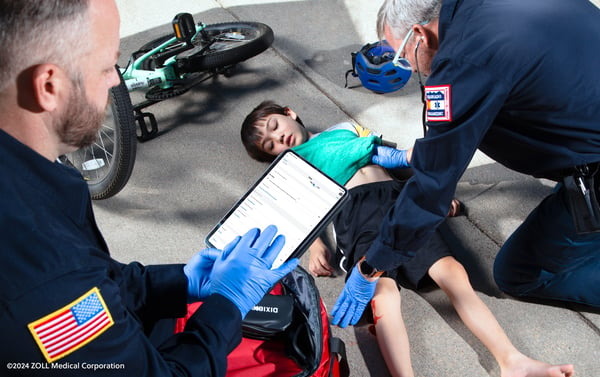Chart Smarter: Why One EMS Agency Ditched Paper for Mobile Tech
EMS and Fire: Unique Challenges and Solutions
How Chris Davison of Tucson Fire tackles challenges and optimizes for efficiency (6 min read) Chris Davison has been the Ambulance Billing Manager for the Tucson Fire Department since December 2014
.jpg?width=864&name=Davison-headshot%20(2).jpg)
How Chris Davison of Tucson Fire tackles challenges and optimizes for efficiency
(6 min read) Chris Davison has been the Ambulance Billing Manager for the Tucson Fire Department since December 2014. Previously, she spent over 16 years in the City of Tucson’s Risk Management Division where she was responsible for all of the City’s subrogation claims. Her time spent in Risk Management made her very aware of how litigious American society is, and of the importance of education and compliance in order to reduce this risk.

Want to learn more about Chris Davison and Tucson Fire's success with Billing Pro?
Q: What are the unique challenges of a fire department?
First off, people don't want to pay the fire department. They think their taxes cover our services, which they don’t. By using the Deductible Hold feature in Billing Pro, we’re able to avoid having that awkward conversation with patients. If a patient has an unmet deductible, instead of billing the claim out right away we wait a maximum of 60 days to see if the deductible is met first by another provider, most likely from the hospital claim, before we submit our claim to the insurance company.
I think it improves the patient experience as well. In just one month, out of the 71 claims held for deductible, I had 10 of them go from a full balance down to a zero-patient responsibility. Then I had others that went from $1300 in patient responsibility down to $300. I think a patient is going to be more willing to pay us $300 than $1300.
Another challenge for us is that our crews get zero insurance information from our patients. This boggles most other agency’s minds. But that’s our policy and I have to work around it. We rely 100 percent on the hospitals to provide us with insurance information and patient demographics. And we all know face sheets are not always the most accurate source of information!
Sometimes we have to put on our investigative hat in order to track somebody down. We have a lot of winter visitors here in Arizona. We also have a world-famous gem show in Tucson that runs for the month of February with attendees from all over the world. One of my billers actually tracked somebody down in Thailand; I was pretty impressed. Plus, the patient had insurance and we got paid, so that was a happy ending! It's interesting sometimes.

Q: How did you make your billers more efficient, and why was this so important to you?
I knew that the efficiency of saving keystrokes with Billing Pro was going to be a big difference for us. Being able to avoid going to multiple payer websites has made a huge impact. Prior to Billing Pro, in addition to checking multiple commercial payer websites, we used to check every single patient against our state Medicaid website to make sure we weren't missing any Medicaid coverage. We would also check every Medicare beneficiary against our MAC’s website to make sure we weren't missing any MSP, there wasn’t a hospice election we weren’t aware of, that the patient wasn’t on an Advantage plan…it was very time consuming.
Now, with the click of a button, Billing Pro tells us:
- The patient’s SSN, date of birth, phone number and address
- If the insurance policy is active and details about the policy
- If there's Medicaid or a commercial policy out there that we missed
- If a Medicare patient is on a hospice election, has MSP, or an Advantage plan
- If a Medicare patient is QMB
To really understand and be able to quantify this time savings, I took a typical day of a biller and went through what the research on his claims would have looked like prior to Billing Pro, including all the websites he would have had to log into during the day, and then added up all the keystrokes he would have had to enter (patient's name, date of birth, date of service, etc.). It turned out to be about four to five thousand keystrokes in just one day. And that’s just one biller!
That’s a huge amount of time we are saving per biller. These guys and gals are on the computer all day long. Anything I can do to make their hands less stressed, the better.

Q: How have you taken advantage of technology and automation? What have been the benefits?
We are using both technology and automation in taking advantage of Billing Pro’s Deductible Hold feature. We’re now automatically holding off on runs that have an outstanding deductible instead of filing a claim right away to insurance. By waiting to file our claim, we usually see an increase in payment from the insurance company and a decrease in the patient responsibility.
In general, when confronted with a bill, patients are going to do one of three things:
- They're going to pay you right away.
- They're going to pay you over time.
- They're not going to pay you at all.
If a patient has Medicare – and they've already met their Part B deductible – we get our claim out right away. If a patient has a Medicaid plan, we get that claim out right away too. But the claims we hold are those commercial plans that have an outstanding deductible or a Medicare patient that hasn’t met their Part B deductible yet. We hold off and wait on sending those out. Not forever, just for a maximum of 60 days. And it’s all done within the software.
When pre-billing a claim, we verify the insurance coverage and Billing Pro will tell us the remaining amount of the deductible. If it hasn’t been met yet, we set the event date in RescueNet out 60 days from the date of service. I do go back and check to see if the deductible has been met, usually every 10 to 14 days, and if it’s met before the 60 days is up then I bill the insurance. But if the deductible’s still there at 60 days, we stop waiting and bill the insurance. And since events are automated within RescueNet, if we all fall off the face of the earth, the claim is still going to go through to insurance at day 60.
Checking is as easy as going back into Billing Pro and right clicking “update deductible.” If it’s met prior to the 60 days, then I change the event and the claim goes out. Worst case, I've delayed 60 days in the attempt of getting more payment. Using this process, in just one month we increased our insurance payment by $39,000. The patients still had to pay their deductible to someone else but it’s not to us so I don’t have to worry about collecting it. That can be another provider’s headache, not mine.
This meant my billers went from having to try to collect $48,000 from our patients to $8,000. That's huge. To take a claim that would have been a full balance going to the patient, and instead turn it around so it’s full payment from the insurance – I will take it any day of the week. To me, that was game changing. I'm rolling the dice 60 days to get $40,000? Yeah, I'll roll that dice!
Want to learn more about Chris Davison and Tucson Fire's success with Billing Pro?
Related Posts
The End of Delayed Documentation
4 Must-have Data Points for Dispatch-Billing Alignment and Maximum Reimbursement
ZOLL Pulse Blog
Subscribe to our blog and receive quality content that makes your job as an EMS & fire, hospital, or AR professional easier.
ZOLL Pulse Blog
Subscribe to our blog and receive quality content that makes your job as an EMS, fire, hospital, or AR professional easier.





